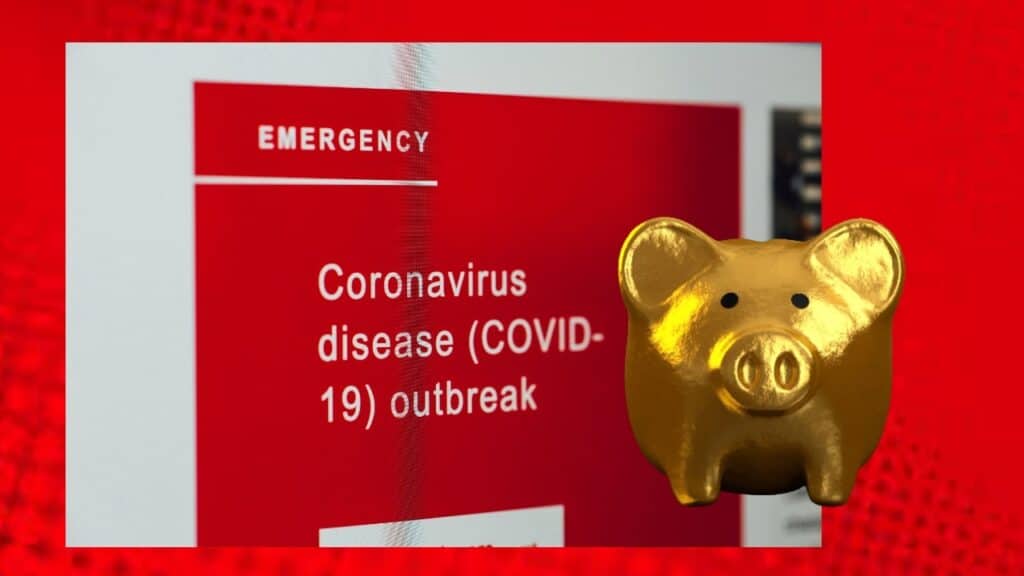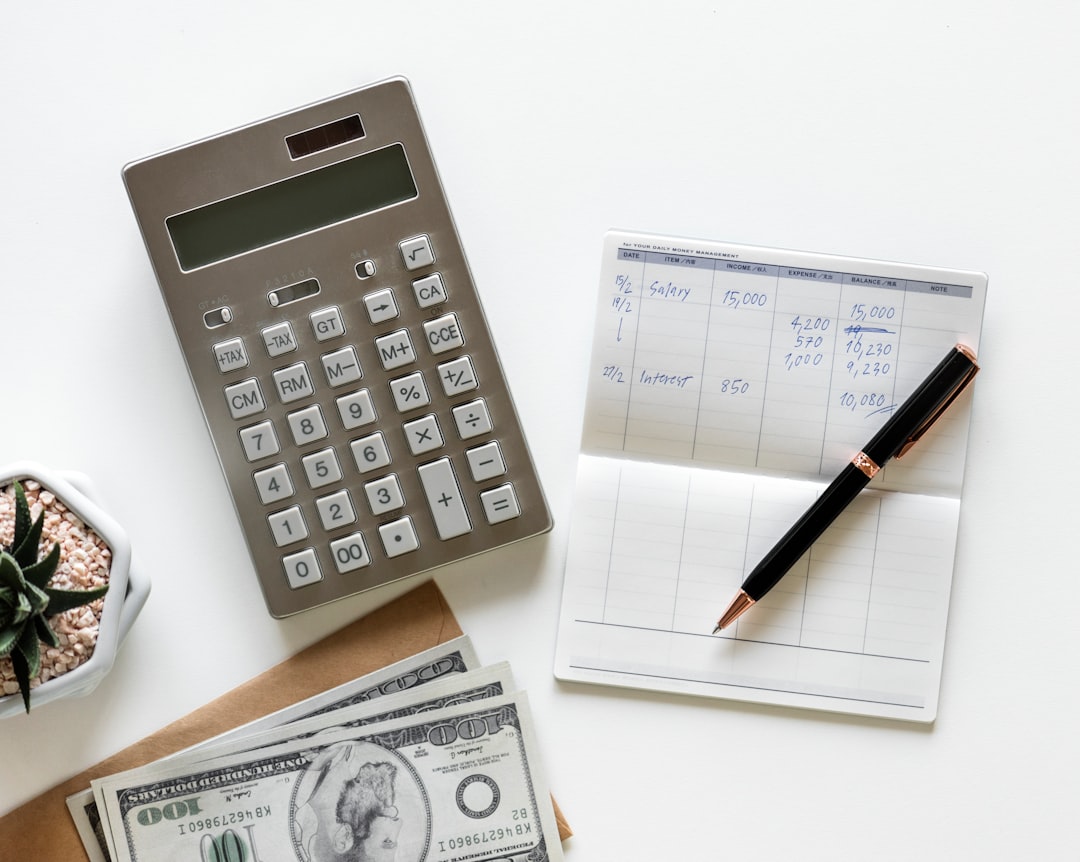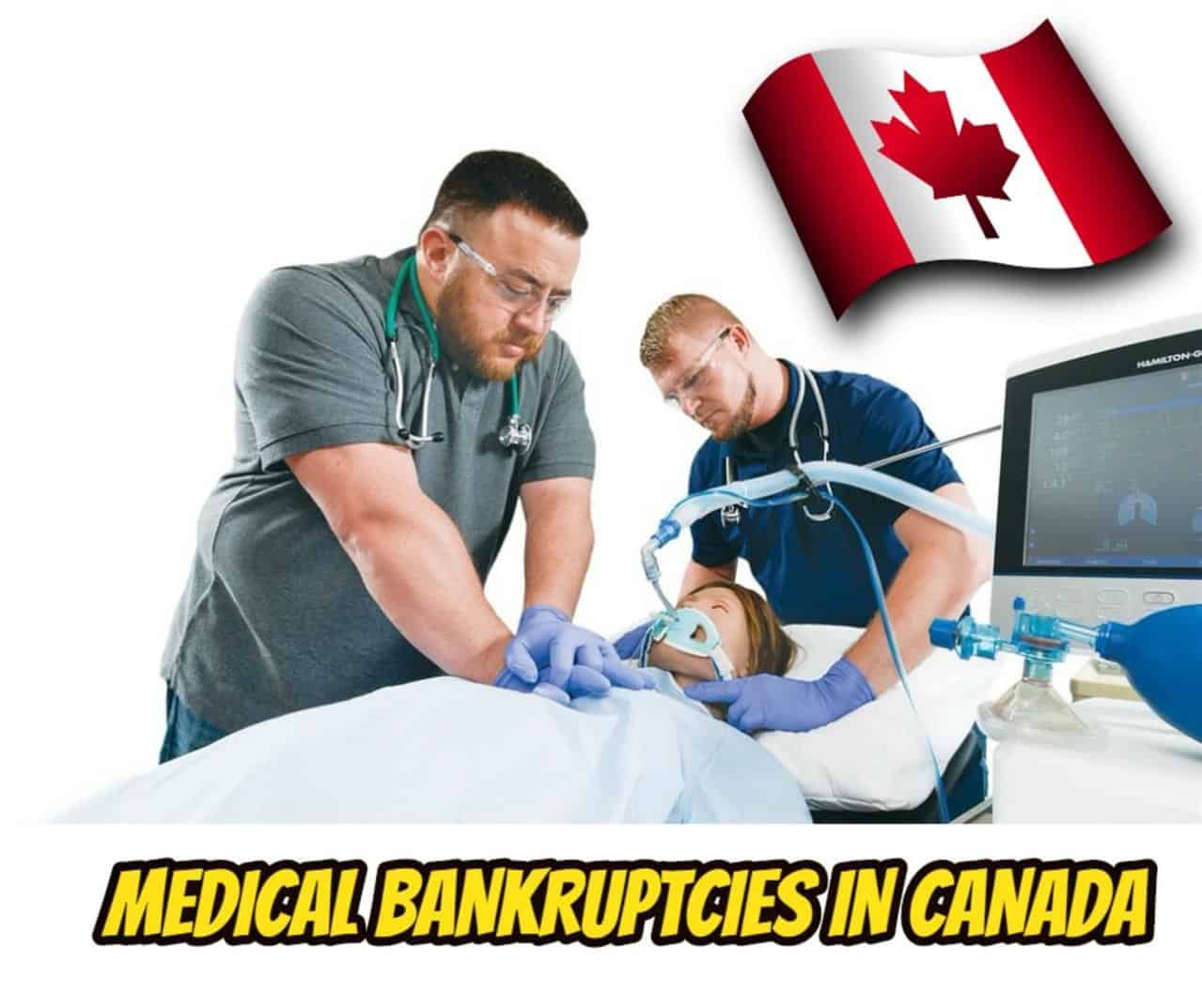
We hope that you and your family are safe, healthy and secure during this COVID-19 pandemic.
Ira Smith Trustee & Receiver Inc. is absolutely operational and Ira, in addition to Brandon Smith, is readily available for a telephone consultation or video meeting.
If you would prefer to listen to an audio version of this Brandon Blog, please scroll to the very bottom and click play on the podcast.
Do I really need to be saving for an emergency fund?
Saving for an emergency fund is important for safeguarding your family’s financial future. When an emergency occurs, what happens if you haven’t saved some money in advance? Should you use all your money to pay down debts or should something be set aside for a rainy day? With the COVID-19 pandemic, we have learned that you never know when and how you might be affected by a health issue.
There are times when people need to tap into their rainy day fund because of a financial emergency. There are always unexpected expenses. The idea of “emergency savings” is easy to understand. Rainy day funds: what are they and how do they work? In this Brandon Blog, I explain the importance of having an emergency fund and how you should go about saving for an emergency fund.
What are examples of emergency expenses?
Emergency savings are intended for emergencies, as its name implies. Life is full of unexpected events:
- breakdown of the car or repairs because of that fender bender;
- there’s a problem with the fridge;
- in a recession or when the economy shuts down you lose your job, with the resulting loss of income, as we have seen;
- emergency medical expenses.
In the absence of emergency fund money to cover such expenses, you could end up paying your bills with a credit card, relying on payday loans, or heavily utilizing your secured or unsecured line of credit. These are very expensive ways to meet your urgent expenses. Saving for an emergency fund so that you have funds on hand is a much better strategy.
How do I start saving for an emergency fund?
Planning your personal finances begins with a monthly budget to be able to track monthly income and monthly expenses. It can be as simple as looking at your bank accounts and credit card statements to get a handle on what your monthly income and expenses are and writing it down on a piece of paper. Or, you can get fancier and use electronic budgeting worksheets, budget apps or an online budget calculator.
You should follow three main steps when building an emergency fund.
- Keep a daily record of your household expenses and categorize them as discretionary or non-discretionary.
- Take an average of all your expenses over several months to get a feel for a true average monthly amount.
- In addition to taking stock of your expenses, this exercise should be used to weed out all unnecessary expenditures. You can begin to save money by redirecting those unnecessary expenses into savings.
An emergency can last for any number of months, so plan ahead by setting aside enough money to last at least six months. Individuals, couples, or families have different requirements. Is it a single-income family or a double-income family? The length of time it takes to save an emergency fund, as well as the amount needed, will be determined by this.

How much savings should I have when saving for an emergency fund?
There are some rules of thumb that a financial expert would recommend when deciding how to go about creating financial plans and saving for an emergency fund. You can use the 6 months of expenses calculated in your current budget as a general rule of thumb to set up a six-month emergency fund.
A six-month benchmark for emergency funds is a good place to start, but it’s not foolproof. COVID-19 has shown that even a six-months emergency fund cannot cover your household expenses if your income is dropped for an extended period of time. Depending on your financial goals, this can be extended. Harvard University found that 46% of households in the United States that lost their jobs as a result of the pandemic spent all or most of their emergency savings.
If you are saving for an emergency fund, consider things like:
- your household’s number of people;
- income of the household members;
- the minimum amount needed to cover your monthly household expenses; and
- How stable is each income source is and is there any additional income source that can be created or you may have just not thought about, such as a side gig to create business income or income tax refunds.
Ideally, your emergency fund should be proportionate to your earning potential and reflect how much you can save. It should also represent an amount that feels comfortable for you. A very important thing not to overlook is that you need to consider your income on an after-tax basis, not gross so that you have accounted for paying your income tax on time.
5 normal questions about saving for an emergency fund during the COVID-19 pandemic
Two of the five questions we have already dealt with: (i) how do I start saving for an emergency fund?; and (ii) how much savings should I have when saving for an emergency fund?
The next 3 standard questions and answers, I list below.
Where is the best place to put your emergency fund?
An emergency fund serves as a safeguard when you are faced with a true emergency. You will feel more at ease if you can fund your expenses from your emergency account in case of unforeseen circumstances. Make sure the emergency fund is separate from the other accounts. Keeping your emergency fund liquid is essential. Avoid investments that require a long-term commitment.
I recommend that you keep a certain portion liquid in an interest-bearing savings account (is there such a thing anymore as a high-yield savings account?). Right now interest rates are low, but something is better than nothing. As I already stated, keep it separate from your other funds.
To be able to automatically save without thinking about it, set up an automatic payment each pay period from your chequing account into this saving for an emergency fund savings account. Finally, put the balance of your emergency funds into a short-term GIC that can be cashable on demand. That way, it will earn something but is also liquid if needed.

I have a line of credit – should I still be saving for an emergency fund?
Keeping an emergency fund is always a good idea, as mentioned above. It’s good to have a line of credit, especially if it has a low-interest rate. However, I wouldn’t use it as my first line of defence. If you don’t have enough money in your emergency fund to cover the immediate needs, you can always use your line of credit to supplement your emergency fund. In the event that you borrow to meet those expenses, you should aim to repay the borrowed funds as soon as possible.
Should I use my emergency fund to pay off debt? Should I pay down debt before saving for an emergency fund?
Yes, it is true for some people. You might want to start paying down debt before saving for an emergency fund if you have a large amount of debt and no way to repay it. When an emergency comes up, however, you will have less money on hand if you do that.
Isn’t it better to repay your debt before you start an emergency fund if you’re in debt? Yes, the answer is yes! It does not have to be done at once. It is important to pay off the smallest balance first so that you can spend more on essentials and cut back on unnecessary expenses. This strategy only works if you are disciplined enough to stick with it.
It also depends on what kind of debt. High-interest credit card or payday loan debt should definitely be paid down first. As I previously wrote in a recent Brandon Blog, those with a poor credit score have been able to pay down massive amounts of their credit card debt. However, in order to not run that credit card statement back up, the next step should be saving for an emergency fund.

Saving for an emergency fund summary
I hope that you found this saving for an emergency fund Brandon Blog informative. Unexpected emergencies, by their very nature, are not pleasant and could have the effect of adding significantly to your debt load. There are several insolvency processes available to a person or company with too much debt. You may not need to file for bankruptcy.
If you are concerned because you or your business are dealing with substantial debt challenges, you need debt help and you assume bankruptcy is your only option, call me.
It is not your fault that you remain in this way. You have actually been only shown the old ways to try to deal with financial issues. These old ways do not work anymore.
The Ira Smith Team utilizes new modern-day ways to get you out of your debt difficulties with debt relief options as an alternative to bankruptcy. We can get you the relief you need and so deserve. Our professional advice will create for you a personalized debt-free plan for you or your company during our no-cost initial consultation.
The tension put upon you is big. We know your discomfort factors. We will check out your entire situation and design a new approach that is as unique as you and your problems; financial and emotional. We will take the weight off of your shoulders and blow away the dark cloud hanging over you. We will design a debt settlement strategy for you. We know that we can help you now.
We understand that people with credit cards maxed out and businesses facing financial issues need a realistic lifeline. There is no “one solution fits all” method with the Ira Smith Team. Not everyone has to file bankruptcy in Canada. The majority of our clients never do as we know the alternatives to bankruptcy. We help many people and companies stay clear of filing an assignment in bankruptcy.
That is why we can establish a new restructuring procedure for paying down debt that will be built just for you. It will be as one-of-a-kind as the economic issues and discomfort you are encountering. If any one of these seems familiar to you and you are serious about getting the solution you need to become debt-free, contact the Ira Smith Trustee & Receiver Inc. group today.
Call us now for a no-cost consultation.
We hope that you and your family are safe, healthy and secure during this COVID-19 pandemic.
Ira Smith Trustee & Receiver Inc. is absolutely operational and Ira, in addition to Brandon Smith, is readily available for a telephone consultation or video meeting.
Ira Smith Trustee & Receiver Inc. is absolutely operational and Ira, in addition to Brandon Smith, is readily available for a telephone consultation or video meeting.




